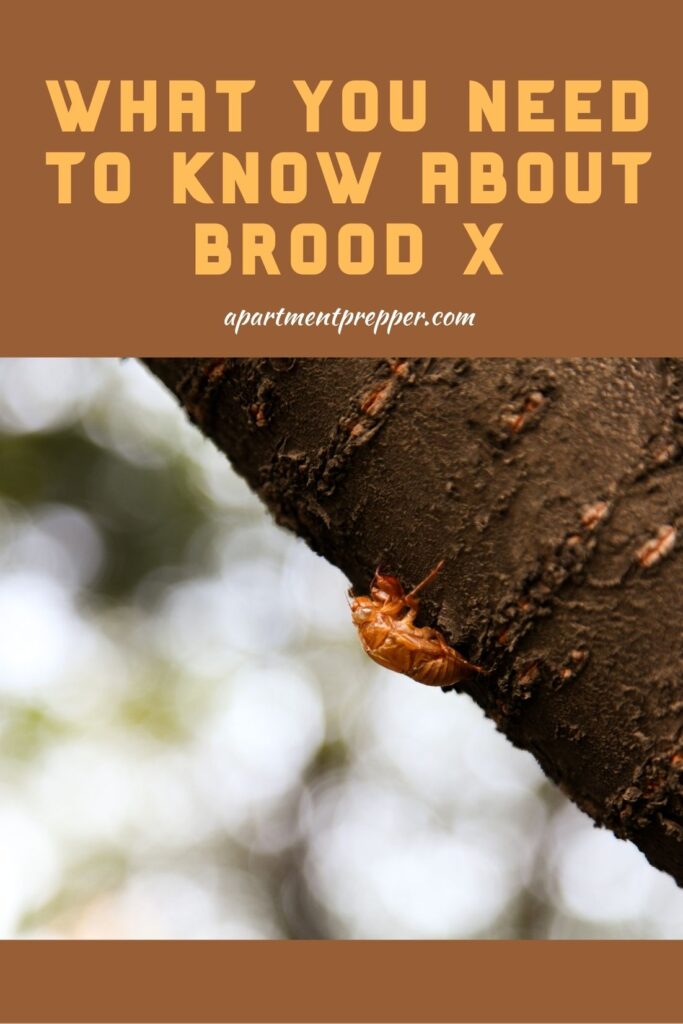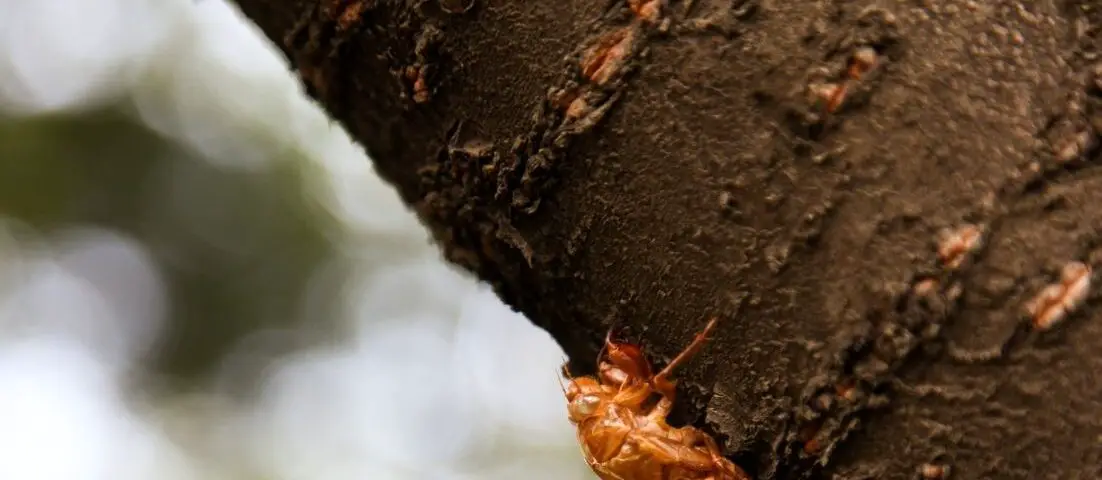Written by Bernie Carr
Brood X (or Brood 10 in Roman numeral) is the cicada infestation that is coming to many states this spring. Millions, or some say billions or cicadas will be coming out of the ground after a 17-year hibernation. They will come in huge and loud. And if you don’t like bugs, you may be particularly disturbed by this upcoming occurrence.
What’s happening?
There are two types of cicadas – annual and periodical. I know that in Texas, cicadas come out every year and start making a lot of that unmistakable noise. Those are annual cicadas as they emerge every year; the ones that are about to appear are periodical cicadas that only emerge every 13 or 17 years.
Brood X is set to come out this year in late April or early May. The last time is happened was in 2004, so many young adults may not remember when it happened and don’t know what to expect.
The cicadas come out of the ground with just one goal- to mate. So the males will be making those droning sounds, and the females will be laying hundreds of eggs. The adult cicadas then die off, while the baby cicadas, called nymphs, go back into the ground and start the 17 year cycle all over again.
What areas will be affected?
If you live in these states, expect to see this natural phenomenon in a few days or weeks:
Delaware, Georgia, Illinois, Indiana, Kentucky, Maryland, Michigan, New York, North Carolina, New Jersey, Ohio, Pennsylvania, Tennessee, Virginia, West Virginia and Washington, D.C.
Some cities are already showing signs in mid-April.
Will they ruin your plants?
Cicadas will not chew up plants, as they have no chewing ability.
Your trees will need protection, especially young, newly planted trees. It’s best to avoid planting new ones if you live in a state that will be blanketed by Brood X. The females cut through the branches and lay their eggs within, causing the leaves to wither and turn brown. But if you already planted them, there’s hope. You can protect your young trees by covering them with cheesecloth or fine netting at a centimeter or less.
They won’t hurt mature trees, possibly just prune them which encourages growth.
If you want to get rid of cicadas that are already in the trees, use a water hose. Pesticides are not recommended. According to etymologists, pesticides won’t be helpful in getting rid of migrating insects.
Are they harmful?
If you are worried about getting stung, there is good news. Cicadas do not sting or bite, and they are not poisonous. They’re harmless, and may be more of a nuisance as they swarm around, flying into windshields or leaving little carcasses on your driveway.
Cicadas (including Brood X) are actually edible and supposedly nutritious. I am not keen on eating insects. so don’t take this as a recommendation.
What about pets?
Birds and pets may try to eat cicadas while they are plentiful in the area. Cicadas are not poisonous, so if your pet eats a few, you don’t need to worry. But some pets may try to eat too many so there is a risk of choking or over-eating. Your pet may experience allergic reactions such as vomiting or diarrhea. Keep your pet indoors during the cicada infestation.
Sit back and wait
If you are someone who hates bugs, the upcoming Brood X will be bothersome for sure, but there is not a whole lot you can really do to prepare. Stay indoors and shut the windows to drown out some of the ruckus when they start chirping. You may want to keep doors and windows closed to keep them outside. Protect your young trees with mesh or cheesecloth and keep your pets from consuming too many. The event will peak in mid-May through June, and will likely be mostly done by mid-July. It’s a learning opportunity to witness a natural phenomenon right in your own backyard.
We are an affiliate of Amazon.com, which means we received a small commission if you click through one of our Amazon links when you shop, at totally no cost to you. This helps keep the lights on at the blog. Thanks!
About the author:
Bernie Carr is the founder of Apartment Prepper. She has written several books including the best-selling Prepper’s Pocket Guide, Jake and Miller’s Big Adventure, The Penny-Pinching Prepper and How to Prepare for Most Emergencies on a $50 a Month Budget. Her work appears in sites such as the Allstate Blog and Clark.com, as well as print magazines such as Backwoods Survival Guide and Prepper Survival Guide. She has been featured in national publications such as Fox Business and Popular Mechanics. Learn more about Bernie here.


